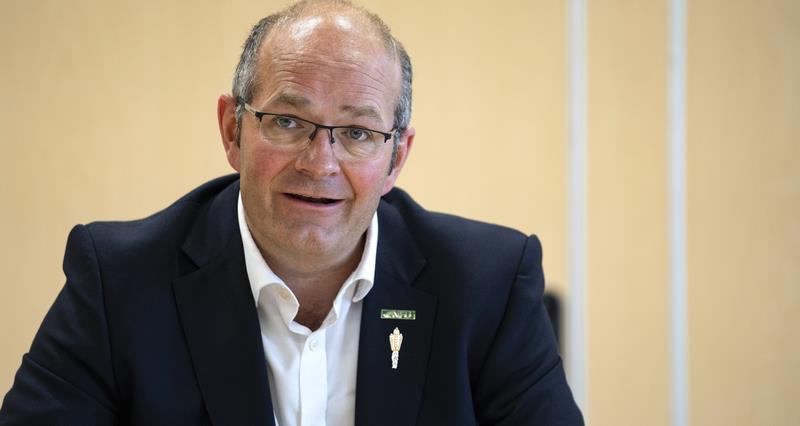
NFU President Tom Bradshaw has warned that the government’s proposed reforms to inheritance tax could turn into “a tax on tragic and unplanned deaths”, as he gave evidence to the House of Lords on the potential impact on family farms.
Bradshaw appeared before the Finance Bill Sub-Committee this week. He was joined by Jeremy Moody of the Central Association of Agricultural Valuers (CAAV) and Judicaelle Hammond of the Country Land and Business Association (CLA).
The hearing forms part of an inquiry into how proposed changes to agricultural property relief (APR) and business property relief (BPR) will affect farming and rural businesses.
The NFU has already submitted written evidence to the committee, warning that the reforms — dubbed the “family farm tax” — could have severe and unfair consequences for farming families. The committee’s findings will help inform parliamentary debate when the Finance Bill is introduced later this year.
When asked by Labour peer Lord Liddle, who chairs the sub-committee, about the immediate challenge facing family farms, Bradshaw said the proposals posed a “widespread and immediate threat” to the viability of many farm businesses.
He explained that most family farms do not have the cash reserves to pay large IHT bills and would likely need to sell land or assets. But selling would be impossible until probate is completed — a process that can take six months to two years — leaving families unable to pay on time or borrow against the estate.
“The human impact of this goes way beyond the economics,” Bradshaw told Peers. “This is something not being considered by the government, which is so sad.”
Bradshaw added that the NFU’s concern was not only financial, but deeply personal. “The situation we could find ourselves in now is that this ends up being a tax on tragic deaths,” he said.
“The first period will be the elderly and then after that it’s going to be those who either haven’t planned or completely unplanned deaths, which may well be younger… Now is that a logical tax planning scenario?”
When asked by Liberal Democrat peer Baroness Bowles of Berkhamsted whether farmers were prepared for the changes, Bradshaw and other panellists agreed that while awareness of the proposals was high, preparedness was low.
They said their organisations had been limited in offering advice, as neither the government nor HMRC had provided enough detail about how the reforms would be implemented in practice.
Bradshaw also criticised the “forestalling clause”, which applies the new APR and BPR rules to asset transfers made after 30 October 2024 — the date the government announced the policy — and before the start date of 5 April 2026. He said this clause was “absolutely unforgivable”, as it could penalise families who suffer a death within that period.
“For more than three decades, farmers have been relying on tax advice that told them to hold on to agricultural assets until they die,” he said, adding that the new clause would make that approach unworkable.
Peers also questioned why the Treasury’s estimates of how many farms would be affected differ so widely from those presented by the NFU and industry experts.
Bradshaw said the government had misunderstood the structure of agricultural estates claiming APR, meaning genuine family farms could be unfairly caught by the reforms.
He cited a report by CenTax (Centre for the Analysis of Taxation), which suggested that if APR were restricted to estates with more than 60% agricultural or business property, the policy could still target wealthy investors while protecting real farm businesses.
Bradshaw warned that the changes risk restricting investment in food production by making farmland less attractive to family farms while leaving investors largely unaffected.
He said that under the new system, an effective 20% inheritance tax rate on agricultural assets would still appeal to investors but make succession planning impossible for farmers.
CAAV adviser Jeremy Moody agreed, saying the government’s proposals “hurt those it has been designed to protect and protect those it is designed to hurt.”
Bradshaw urged peers and MPs to consider the human impact behind the policy debate, noting that it would leave bereaved families facing financial pressures at the worst possible time. “This is not just about balance sheets,” he said. “It’s about the lives and futures of the people who produce our food.”
The committee’s report is expected later this year and will help shape parliamentary debate on the Finance Bill as it progresses through both Houses.
